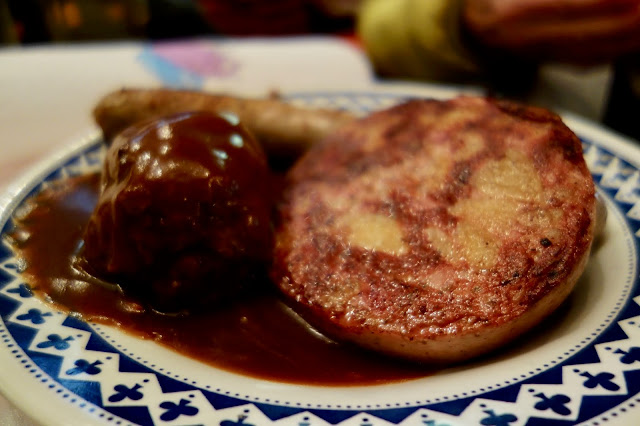Sankt Martin’s Fest
Travel is an interesting concept and fairly new. Used to take months to get to Europe from the New World. Three generations ago, as a young man, my grandfather rode from Florida to South Carolina on a mule. The U.S. was mostly rural. Travel meant going to the closest big city, only ten or twenty miles at the most.
Now we hop on a jet and go from the heart of the United States to London in about seven hours. Another hour and a half gets us to Berlin or Rome.
Somehow, local travel has become less attractive, or maybe we just take it for granted. A shopping trip. A local museum that’s not as grand as the Louvre or the Prado. Bragging rights to how far we've been and sights that eclipse the local venues.
For me, living and traveling in Germany is different. I don’t feel the need to go far. Maybe it’s because I’m an American and everything is new. A fest that’s been going on for centuries is a fresh flower in my traveling garden. It may be only an hour away, but it’s an adventure. Which brings me to the village of Sankt Martin and their yearly festival honoring the saint.
A lovely old town. Solid stone buildings. Flowers decorating every window ledge. Cobblestone streets. Sights that make your camera click every few paces. Streets clogged with smiling people and baby strollers, the scent of roasting chestnuts and grilled Bratwürst permeating the air. Vintners, with doors thrown wide, serving half liters of their best, at prices less than you’d pay for a small glass of vin ordinaire in the States. But, all is not just Brats and street food. Wide doors of old hewn oak open to sprawling arrays of foods, from potato dumplings to wild boar goulash and fried schnitzel and heaps of vinegary potato salad.
But, it’s not just a festival of plentiful food and drink. There’s a deeper reason the town opens up every year and with a name with ‘saint’ in front of it, of course it has its roots in the Catholic faith. Germans are not ashamed their open faith may offend. No prohibitions on whole towns celebrating this saint or that.
But, now, let’s get more specific.
Martin was a Roman soldier who ripped his cloak in half to share with a beggar during a snowstorm. While he slept, he dreamt of Jesus and later became a bishop. In the past, on 11 November, the tradition used to signify the end of the seeding of wheat and the killing of fatted cattle for Martinmas beef. Didn’t see any cattle being slaughtered, so it wasn’t the Christian version of Ramadan. But, each year the celebration continues.
People flocked for the food and librations and at the local Catholic Church, riders came for the blessing of their horses.
Although the town of Sankt Martin carries his name, the celebration carries through many parts of Germany and France.
Of course for me, it’s always the people. We sat at a long plank table to enjoy Würst und Schnitzel, potatoes in many forms, and luscious green salads, along with pint sized glasses of red wine. Our table neighbors heard us speaking English and thus ensued a long conversation of their son who lives in the U.S. and questions about what brings us to Germany. My wife is a teacher and so was his wife, seated across from him. Her husband and I sat in silence as teacher-talk took over.
Then it was time for another conversation with the folks on the other side of us and when they left, yet another conversation, all the while switching between German and English and a smattering of both when one of us lacked the vocab.
Often, when friends come from the States to visit, they have their hearts set on visiting the whole of Europe. “How long do you plan to stay?” we ask.
“Oh, about a week and we want to go to London and Berlin and Rome and Madrid.”
“How about we drive an hour down the road?”
They look disappointed. But, wait until they taste the wine and meet some Germans and suddenly their thirst for travel blossoms and that photo op in a slew of big cities will never again quench their thirst.
 |
| Under the green lights of a Weinstube, here's a famous sweet and soft St Martin's pretzel. |
 |
| Yes, the grapes are already harvested, but this is still wine country! |













No comments:
Post a Comment